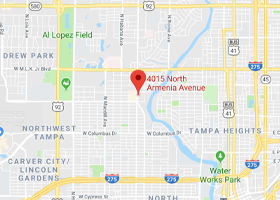Medical Evaluations on Site
Our office has a medical physician onsite to assist patient’s involved in motor vehicle collisions. The physician will assess emergency medical conditions and co-ordinate care when services outside Dr. St. Hilaire’s scope arise. Florida law requires patient’s seek treatment within 14 days to receive insurance benefits.

Common Auto Injuries
What are the common injuries? How long after a car accident can symptoms appear? What are common treatments for those injuries? How long does treatment normally last, and how long can it go on for? What permanent injuries can be sustained that might not be readily diagnosed? Maybe discuss at what point injuries are declared “permanent”? Who makes that call?
Injuries following a car accident are as varied as the types of accidents that occur: head on, T-boned, rear-ended, and rollover.
Symptoms may arise immediately such as in striking one’s knees upon the dash, or their head upon the head restraint or they may develop over the initial 1-7 days following the accident as may be the case with disc or cartilage related injuries.
Common auto accident related injuries treated at our office include:
- Concussion
- Post Concussion Headache
- Cervicogenic Headache
- Temporomandibular Joint Syndrome
- Cervical/Thoracic/Lumbar Sprain
- Cervical/Thoracic/Lumbar Facet Joint Injury
- Cervical/Thoracic/Lumbar Disc Herniation
- Cervical/Thoracic/Lumbar Joint Instability
- Rotator cuff Injury
- Wrist Sprain/Carpal Tunnel Syndrome
- Knee Sprain
- Patellofemoral Joint Dysfunction
- ACL Sprain or Tear
- Meniscal Tear
- Ankle Sprain
Treatment length varies with the severity and chronicity of injuries. Uncomplicated sprains may require few treatments with Disc herniation and nerve entrapment lasting over multiple months.
A condition is considered a permanent impairment when further treatment is not expected to result in improvement of the patient’s condition and the patient continues to experience both pain and limitation in their activities of daily living or employment. Permanency is assessed after an adequate trial of treatment and after the condition could not be expected to resolve on its own.
